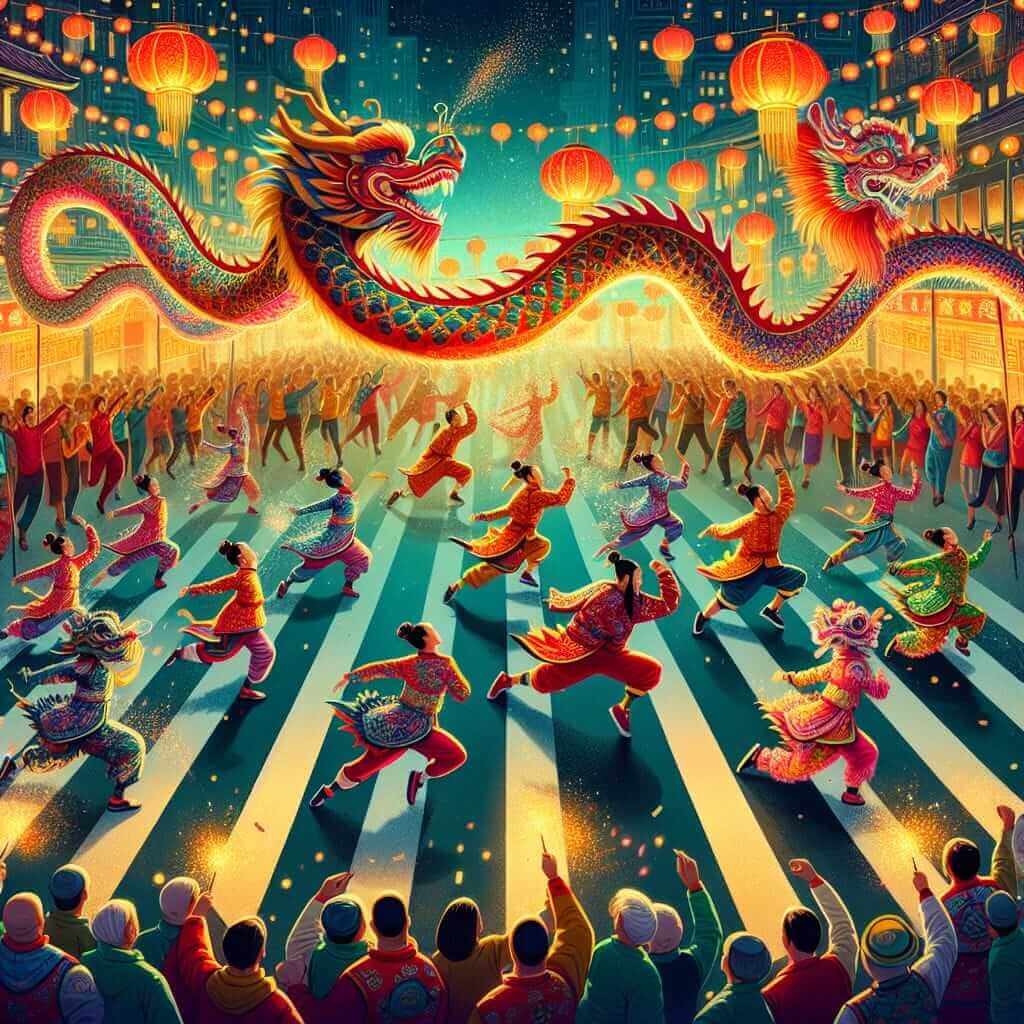The IELTS Reading section is designed to assess a candidate’s comprehension skills through a variety of reading materials. One recurring theme in the IELTS Reading passages is cultural festivals and their societal impact. Understanding such topics can provide you with valuable insights for the exam, as they often appear in one form or another.
Cultural festivals are celebrated globally, transcending borders and creating a sense of community and shared heritage. Analyzing the role of these festivals in society can offer us a better understanding of various cultural dynamics. This topic has been prevalent in past IELTS exams, making it a potential subject for future tests. Let’s dive into an in-depth practice passage on this theme.
IELTS Reading Passage: Role of Cultural Festivals in Society
Passage
Cultural festivals have long been a medium through which societies express their cultural identity. They bring people together, reinforce community bonds, and instill a sense of pride among participants. These festivals range from small local events to large international celebrations, each playing a unique role in preserving and promoting cultural heritage.
One significant role of cultural festivals is the preservation of traditional customs. Many rituals, dances, and ceremonies that are showcased during these festivals have been passed down through generations. By actively participating in these events, younger generations learn about their heritage and help in keeping these traditions alive. For example, the Chinese New Year festival emphasizes traditional performances like the dragon dance, which is symbolic of goodwill and fortune.
Furthermore, cultural festivals serve as a platform for cultural exchange. They provide an opportunity for people from different backgrounds to experience and appreciate diverse traditions. This fosters mutual respect and understanding among various cultural groups, promoting social cohesion and harmony. Events like the Rio Carnival in Brazil attract millions of visitors worldwide, showcasing vibrant Brazilian culture while inviting global participants to partake in the celebration.
Cultural festivals also contribute significantly to the local economy. Increased tourism during festival periods boosts local businesses, from hospitality and food services to crafts and retail. The economic benefits of festivals are multifaceted, providing short-term financial gains and long-term developmental opportunities. For instance, Japan’s Cherry Blossom Festival not only celebrates the fleeting beauty of sakura but also significantly increases spending in local businesses, thereby bolstering the economy.
Additionally, these festivals reinforce community identity and pride. When communities come together to celebrate their shared heritage, it strengthens their collective identity. Festivals like India’s Diwali encourage families and neighbors to come together, illuminating their homes and public spaces, thereby fostering a sense of togetherness and belonging.
In conclusion, cultural festivals play a pivotal role in society by preserving traditions, promoting cultural exchange, driving economic growth, and reinforcing community identity. Their multifaceted benefits make them an indispensable part of cultural and societal frameworks worldwide.
Questions
Multiple Choice
-
What is one significant role of cultural festivals?
- A) To teach people foreign languages
- B) To preserve traditional customs
- C) To promote political agendas
- D) To provide free food
-
Which of the following is an example of a cultural festival mentioned in the passage?
- A) Ramadan
- B) Christmas
- C) Chinese New Year
- D) Hanukkah
True/False/Not Given
- The passage states that the Rio Carnival limits participation to Brazilians only.
- Cultural festivals often have a negative impact on the local economy.
- The Cherry Blossom Festival in Japan is an example of an event that helps improve economic activity.
Matching Information
- Match the festival with its significance:
- A) Chinese New Year
- B) Rio Carnival
- C) Cherry Blossom Festival
- D) Diwali
Sentence Completion
- Many rituals and ceremonies showcased during cultural festivals __.
- The increased spending in local businesses during festivals __.
Answer Key
Multiple Choice
- B) To preserve traditional customs
- C) Chinese New Year
True/False/Not Given
- False – The passage mentions it attracts millions of visitors worldwide, implying inclusivity.
- False – The passage specifies economic benefits.
- True – It states that the festival increases spending in local businesses.
Matching Information
-
- A) Chinese New Year – Traditional performances like the dragon dance
- B) Rio Carnival – Showcasing vibrant Brazilian culture
- C) Cherry Blossom Festival – Boosting local economic activity
- D) Diwali – Encouraging community togetherness
Sentence Completion
- …have been passed down through generations.
- …bolsters the economy.
Common Mistakes and Tips
Common Mistakes
- Misunderstanding the relationship between ideas.
- Overlooking keywords that signal important details.
- Rushing through the passage instead of carefully reading.
Tips
- Read the questions first: Identify what information you need to look for.
- Practice skimming and scanning: This helps in locating necessary details without reading every word.
- Underline or highlight keywords: This assists in easily finding relevant information.

Vocabulary
- Festivals (noun): /ˈfɛstəvəlz/ – Celebrations or events usually marked by specific activities or customs.
- Heritage (noun): /ˈhɛrɪtɪdʒ/ – The history, traditions, and culture of a particular community.
- Cohesion (noun): /kəʊˈhiːʒən/ – The action or fact of forming a united whole.
- Tourism (noun): /ˈtʊərɪzəm/ – The commercial organization and operation of vacations and visits to places of interest.
Grammar
- Present Perfect Continuous: Used to describe actions that started in the past and are still continuing.
- Example: “Cultural festivals have been preserving traditions for generations.”
Conclusion
By engaging in thorough practice with passages like these, you will enhance your reading comprehension skills and be better prepared for the IELTS Reading section. Familiarizing yourself with the cultural context, vocabulary, and question types can significantly boost your confidence and performance. Happy studying!
For further reading on related themes, consider exploring our articles on Cultural Heritage and Economic Development and The Influence of Cultural Festivals on Local Economies.